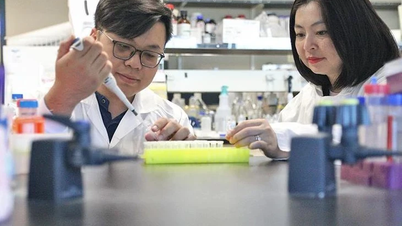A groundbreaking study by Harvard University scientists suggests that mental disorders may stem from “energy breakdowns” in nerve cells, not just chemical imbalances as previously believed.
In an interview with the journal Genomic Psychiatry published by Genomic Press on October 14, Professor Bruce M. Cohen - Director of the Neuropsychiatric Research Program at McLean Hospital and Professor at Harvard Medical School - shared research results that changed the way scientists view and treat mental illnesses.
Cohen's team developed a technique for growing neurons from patient samples using induced pluripotent stem cells (iPSCs), allowing direct observation of disturbances in energy production and cell connectivity.
“We are getting clues that were not available 40 years ago,” he said. These findings reveal abnormalities in brain cell energy metabolism – factors that may be closely linked to diseases such as schizophrenia, bipolar disorder and Alzheimer’s.
The study found that neurons generated from patients with these disorders have specific metabolic defects that can be corrected before clinical symptoms appear, opening the door to earlier and more precise treatments, instead of traditional approaches that focus on neurotransmitters.
Professor Cohen emphasized that the brain is the organ that requires the most energy in the body; any disturbance in the process of energy production or cell communication can affect emotions, thinking and perception.
By combining genetic analysis, advanced brain imaging, and cellular modeling, the team aims for a biological, interdisciplinary, and global psychiatric medicine.
Cohen argues that current diagnostic systems, which divide patients into “boxes” like schizophrenia or depression, do not accurately reflect the biological basis of the disease. He proposes a “multidimensional” model, which describes patients through specific clusters of symptoms rather than rigid labels, to reduce stigma and improve treatment.
According to him, this approach is not only more scientific but also suitable for clinical practice in many countries where Western diagnostic models are not really compatible with the local cultural context.
Looking ahead, Professor Cohen believes that the combination of stem cell technology, genetic analysis and human brain modeling will allow for the early detection of mental health risks – from adolescence to old age. He calls on the global scientific community to invest in innovative, non-traditional research and open data sharing, to “unleash the potential of science everywhere, without geographical or hierarchical limitations.”
His research is considered a turning point in the journey of redefining mental illness - from chemical disorders to cellular energy disorders, paving the way for an era of biologically based and personalized treatment./.
Source: https://www.vietnamplus.vn/havard-cong-bo-phat-hien-dot-pha-ve-benh-tam-than-post1070351.vnp




![[Photo] The 18th Hanoi Party Congress held a preparatory session.](https://vphoto.vietnam.vn/thumb/1200x675/vietnam/resource/IMAGE/2025/10/15/1760521600666_ndo_br_img-0801-jpg.webp)







































































































Comment (0)